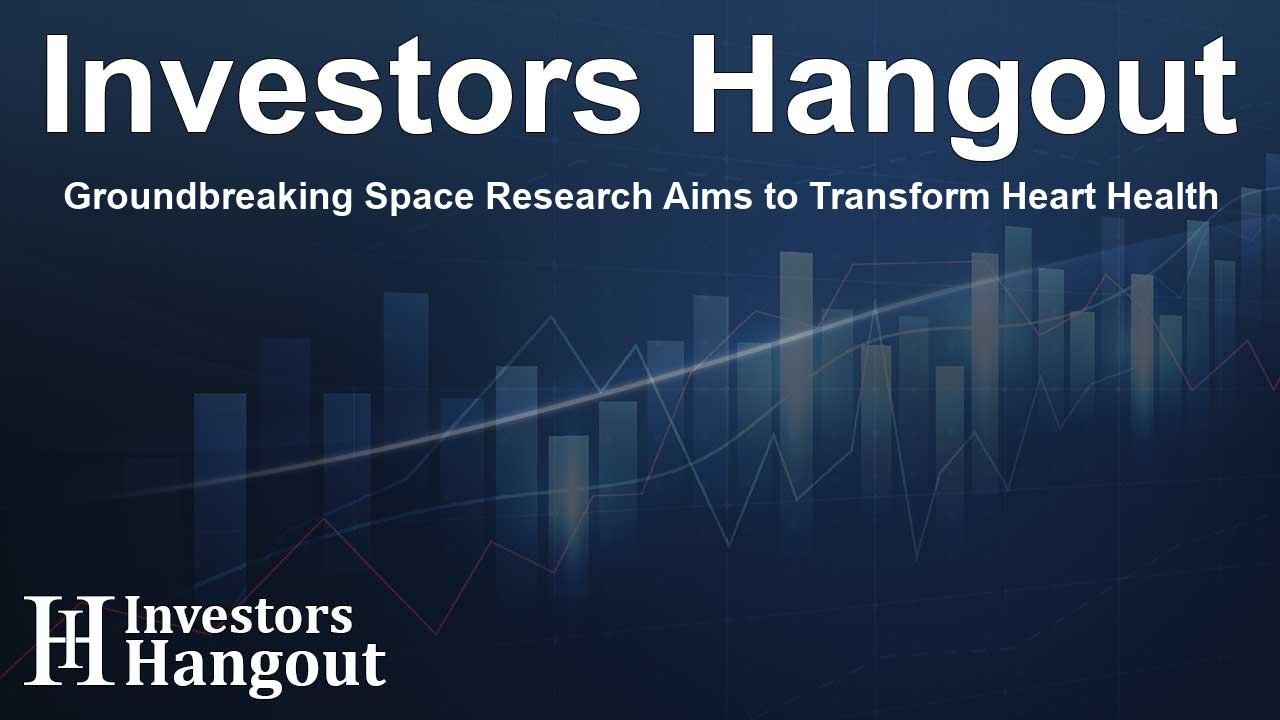Groundbreaking Space Research Aims to Transform Heart Health

Exploring Cardiac Cells in Space for Heart Recovery Solutions
In a pioneering endeavor, researchers are utilizing the unique environment of the International Space Station (ISS) to innovate potential therapies for heart damage. Heart disease, a grave health challenge, is the leading cause of mortality, with significant implications for recovery options available to patients. The ISS National Laboratory has become a beacon of hope as scientists explore the regenerative capabilities of cardiac cells influenced by microgravity.
Why Space is the Ideal Laboratory for Heart Research
Researchers are uncovering groundbreaking insights about how cardiac cells behave in microgravity, which is pivotal for developing therapies that could regenerate damaged heart tissue. Regular ground-based studies have limitations when it comes to understanding certain biological processes; hence, the ISS presents a unique opportunity to conduct experiments beyond Earth’s gravitational confines. Here, conditions are more conducive to observe cellular behaviors that may not manifest in traditional laboratory settings.
The Driving Forces Behind This Research
Heart muscle cells have a notoriously slow regeneration rate, complicating treatments for patients suffering from severe heart conditions. The research teams, led by experts such as Chunhui Xu from Emory University, were inspired by a seminar detailing the effects of microgravity on cancer cells. Observing increased proliferation and survival of cancer cells prompted speculation that similar dynamics could apply to cardiac cells.
Insights from Spaceflight Investigations
Following initial laboratory tests simulating microgravity, Xu's team embarked on spaceflight studies to assess how stem cells could differentiate into functional heart muscle cells. They executed two primary investigations: one focusing on stem cell differentiation and the other examining how these cells mature into structured tissues resembling cardiac muscle. The implications of these studies are profound, opening doors to novel regenerative therapies.
Capturing Unique Biological Responses in Space
Xu conveyed the significance of their findings, stating, "The space environment provides an amazing opportunity for us to study cells in new ways. Our research on the ISS could allow us to develop a new strategy to generate cardiac cells more efficiently with improved survival when transplanted into damaged heart tissue." This research represents a significant leap toward improving treatment outcomes for heart disease patients.
Promising Developments in Regenerative Medicine
The results of this research could revolutionize how we approach heart repair. The gravity-free environment may enable scientists to enhance the production of cardiac cells that are more viable for transplants, potentially reducing the reliance on donor hearts and improving the quality of life for those afflicted with heart disease.
Community and Future Research Directions
As awareness of heart disease grows, public interest and support for research initiatives are paramount. The ISS National Laboratory emphasizes collaboration across multiple sectors, including academia and private research institutions, to capitalize on findings that emerge from this unique laboratory in space. As research progresses, further innovations in regenerative therapies for heart health are anticipated.
Frequently Asked Questions
What is the goal of the cardiac cell research in space?
The primary goal is to investigate how microgravity affects cardiac cell behavior to develop effective regenerative therapies for heart disease.
Who is leading the research on cardiac cells?
The research is spearheaded by Chunhui Xu and her team from Emory University, focusing on stem cell differentiation and maturation in space.
How does microgravity influence cell behavior?
Microgravity may enhance cellular processes such as proliferation and survival, which could be advantageous for producing viable cardiac cells for therapy.
Why is the ISS an ideal platform for this research?
The ISS provides a unique environment where researchers can investigate biological processes that cannot be easily observed or replicated on Earth.
What are the expected outcomes of this research?
The research aims to yield new strategies for generating cardiac cells that could be more effective in treating heart damage, potentially benefiting numerous patients.
About The Author
Contact Riley Hayes privately here. Or send an email with ATTN: Riley Hayes as the subject to contact@investorshangout.com.
About Investors Hangout
Investors Hangout is a leading online stock forum for financial discussion and learning, offering a wide range of free tools and resources. It draws in traders of all levels, who exchange market knowledge, investigate trading tactics, and keep an eye on industry developments in real time. Featuring financial articles, stock message boards, quotes, charts, company profiles, and live news updates. Through cooperative learning and a wealth of informational resources, it helps users from novices creating their first portfolios to experts honing their techniques. Join Investors Hangout today: https://investorshangout.com/
The content of this article is based on factual, publicly available information and does not represent legal, financial, or investment advice. Investors Hangout does not offer financial advice, and the author is not a licensed financial advisor. Consult a qualified advisor before making any financial or investment decisions based on this article. This article should not be considered advice to purchase, sell, or hold any securities or other investments. If any of the material provided here is inaccurate, please contact us for corrections.
